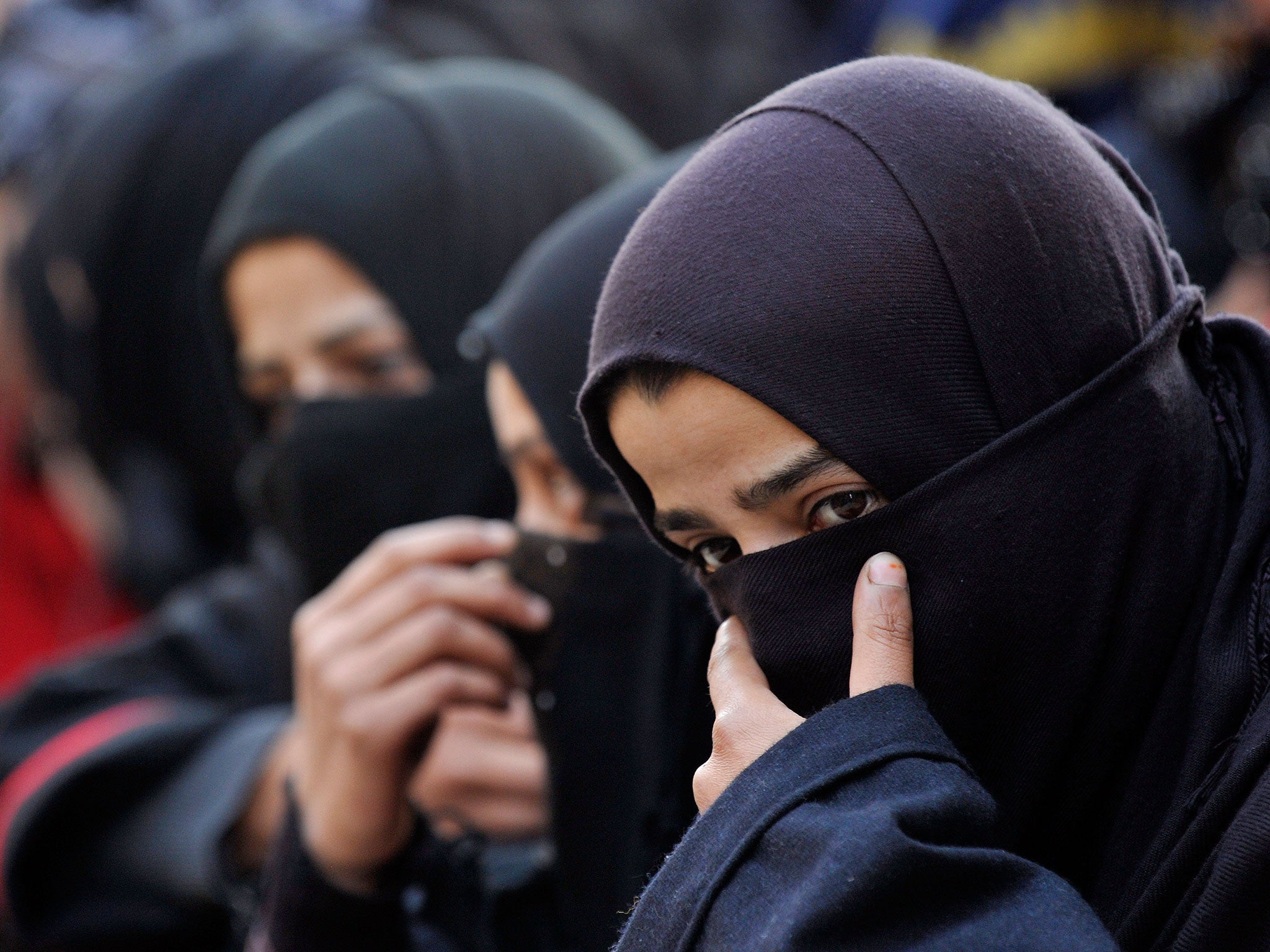Women's group calls for Sharia courts to be banned in India to stop inequality and human rights violations
India's Supreme Court is currently deciding a case on 'triple talaq' instant divorces

A women’s group is calling for Sharia courts to be banned in India to stop inequality and violations of human rights.
The Muslim Women’s Quest for Equality (MWQE) has filed an affidavit arguing the courts, which govern marriage, divorce and family cases for India’s 150 million Muslims, should not be allowed to function as a parallel judiciary.
Its case said organisations including the All India Muslim Personal Law Board (AIMPLB) “should be abolished to save the country and Indian Muslims from the clamp of fundamentalists/activists,” the Hindustan Times reported.
The MWQE argued that freedoms under India’s secular constitution were being abused to leave the courts “entirely free from government control”.
The country’s Supreme Court rejected a previous petition seeking to ban Sharia courts two years ago, but stressed that they had no legal powers over Muslims and their decisions could not be enforced.
Its ruling said Islamic judges, who interpret religious law, could only rule when individuals submitted voluntarily to them and their decisions, or fatwas, were not legally binding.
Vishwa Lochan Madan launched the 2014 petition after a Sharia court ordered a woman to leave her husband and children to live with her father-in-law, who had raped her.
The latest push came as the Supreme Court considers another case on the practice of “triple talaq” instant divorces and polygamy.
Muslim men can divorce their wives by repeating the word “talaq” three times, meaning “I divorce you”, in a practice banned in more than 20 countries including Pakistan and Bangladesh.
The Bharatiya Muslim Mahila Andolan (India Muslim Women's Movement) said it knew of cases where “arbitrary divorces” declared over postcards or telegrams had been upheld by Sharia courts.
“AIMPLB's argument that a Muslim man can delegate his power of pronouncing talaq to his wife is laughable - this can hardly be expected to happen in real life if the wife wants a divorce but husband doesn't,” a spokesperson said.
The countries with anti-women laws
Show all 5“The truth is Muslim personal laws - like other religious laws - flow from patriarchy and relegate women to second class status.”
The AIMPLB, a non-governmental body that oversees the application of Muslim personal law, opposes any ban on “triple talaq” and polygamy.
In evidence to Indian Supreme Court, it argued that men have greater reasoning power compared to women, and that a man using “triple talaq” was a better option than murdering her or burning her alive, Reuters reported.
“Sharia grants the right to divorce because men have greater power of decision making,” the group said. “They are more likely to control emotions and not take a hasty decision.”
The AIMPLB also argued that polygamy was a "social need" and a "blessing" as a lawful second wife was better than a mistress and added that it gave divorced or widowed women more opportunity to remarry.
Indian law allows most religions to regulate matters such as marriage, divorce and inheritance through their own civil code but there has been repeated debate over whether the “arbitrary” laws violate the constitution.
The government is expected to file its own response to petitions against “triple talaq” to the Supreme Court next month.
Subscribe to Independent Premium to bookmark this article
Want to bookmark your favourite articles and stories to read or reference later? Start your Independent Premium subscription today.

Join our commenting forum
Join thought-provoking conversations, follow other Independent readers and see their replies